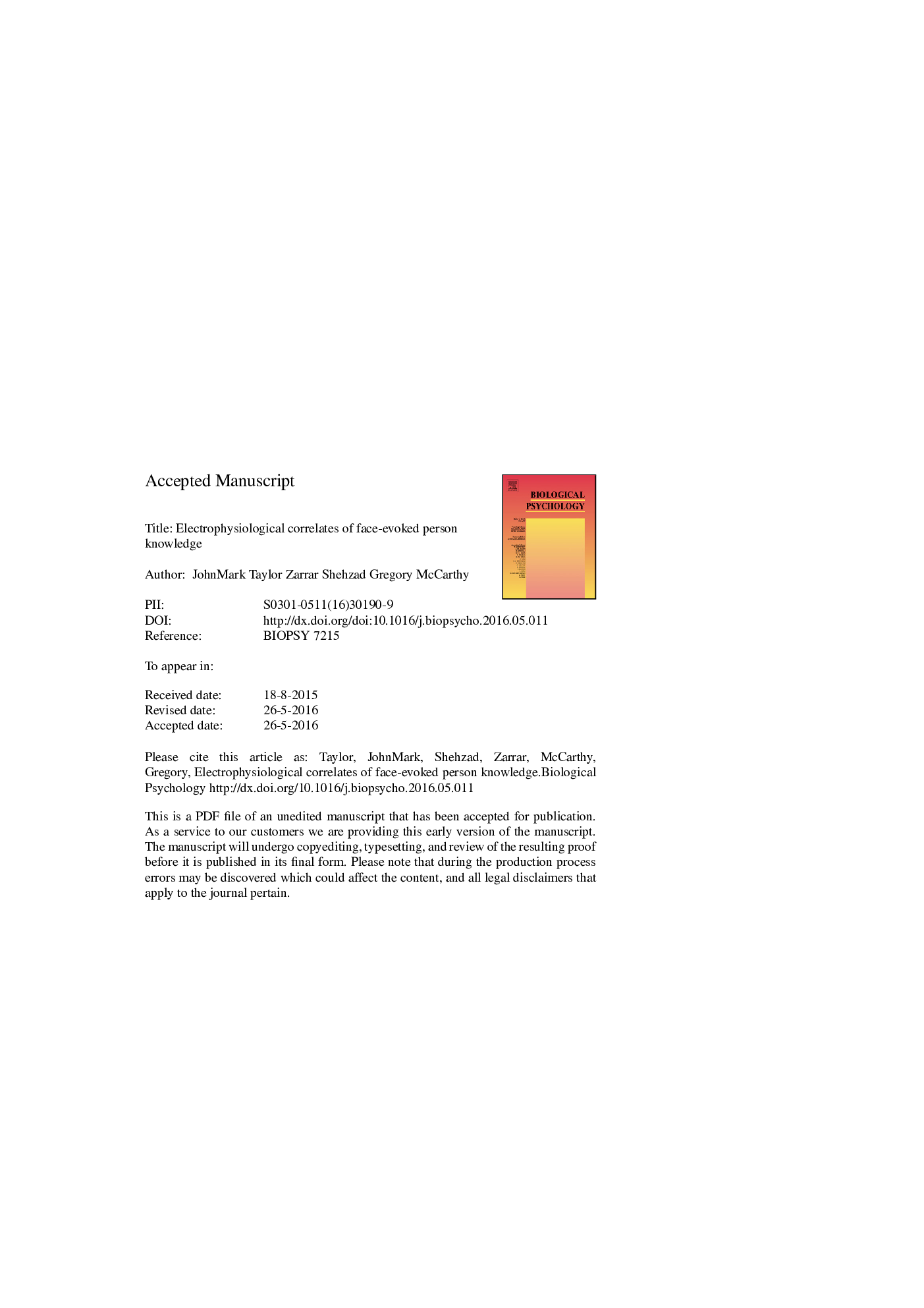| Article ID | Journal | Published Year | Pages | File Type |
|---|---|---|---|---|
| 7278430 | Biological Psychology | 2016 | 39 Pages |
Abstract
Face recognition includes identifying a face as perceptually familiar and recollecting biographical information, or person-knowledge, associated with the face. The majority of studies examining the neural basis of face recognition have confounded these stages by comparing brain responses evoked by novel and perceptually familiar famous faces. Here, we recorded EEG in two tasks in which subjects viewed two sets of faces that were equally perceptually familiar, but which had differing levels of associated person-knowledge. Our results dissociated the effects of person-knowledge from perceptual familiarity. Faces with associated biographical information elicited a larger â¼600Â ms centroparietal positivity in both a passive viewing task in which subjects viewed faces without explicitly responding, and an active question-answering task in which subjects indicated whether or not they knew particular facts about the faces. In the question task only, person-knowledge was associated with a negative ERP difference over right posterior scalp over the 170-450Â ms interval which appeared again at long latency (>900Â ms).
Keywords
Related Topics
Life Sciences
Neuroscience
Behavioral Neuroscience
Authors
JohnMark Taylor, Zarrar Shehzad, Gregory McCarthy,
